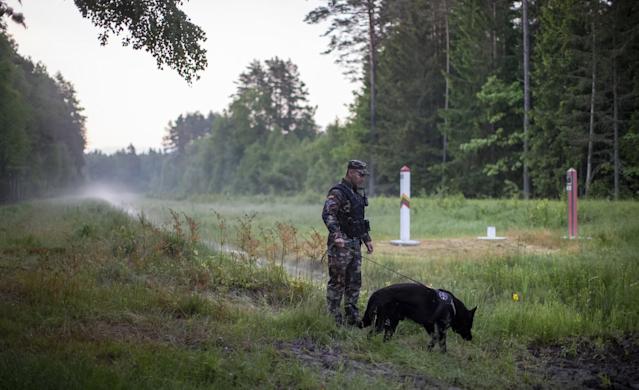By UME
Construction of a barbed wire fence on the Belarusian border to curb illegal immigration has begun in Lithuania, the intergovernmental commission responsible for construction said on Wednesday. The fence will be built by the state-owned company Epso-G, which won the tender. The fence lines have already been staked out in several sections and the construction machinery has arrived at the construction site. The chain-link fence will be four meters high, with barbed wire at the top and up to three meters high. The cost of the works, which will be financed from budgetary resources, is estimated at 152 million euros.
Lithuania had hoped to receive financial support from the European Union, but Brussels has made it clear that it will not participate in the construction of barriers and border fences.
Lithuania has a 1,070-kilometre-long Schengen border, of which around 680 kilometres are in the Belarusian part. Since the beginning of the year, more than 4,100 illegal immigrants from Asian and African countries have crossed this border, 50 times more than in the whole of last year. Lithuania’s Interior Ministry said on Wednesday that border police pushed 63 illegal migrants back to the other side of the border last day. Soldiers and police were also deployed to protect the border. Latvia also announced in early September that it would erect a barbed wire fence on the Belarusian border, and Poland announced at the end of August that it would erect a two-and-a-half-meter-high fence and increase the number of soldiers deployed to support border guards to 2,000. Polish President Andrzej Duda declared a 30-day state of emergency in the border area on September 2. The Polish-Belarusian border is currently protected by a two-and-a-half-meter-high fence along an eighty-kilometer-long border section that is said to be a total of 180 kilometers long.
This and other EU countries have accused Belarusian President Alyaksandr Lukashenka of deliberately bringing migrants to the EU border in retaliation for the West’s punitive measures against the Belarusian regime. Minsk recently decided to introduce a visa-free regime with several countries of the Middle East and Africa and to internationalize its airport in Hrodna (Grodno), near the Polish and Lithuanian borders. Lukashenko blames neighboring countries for the migrant crisis.
Source: Magyar Nemzet

